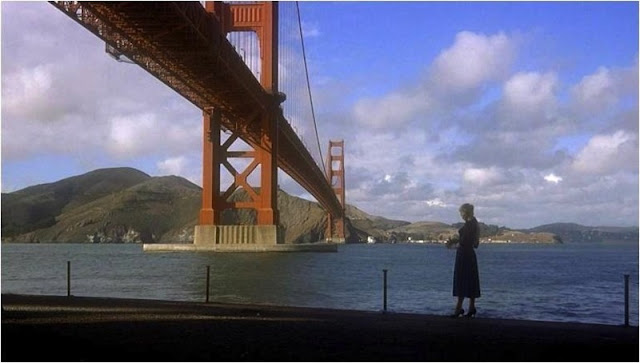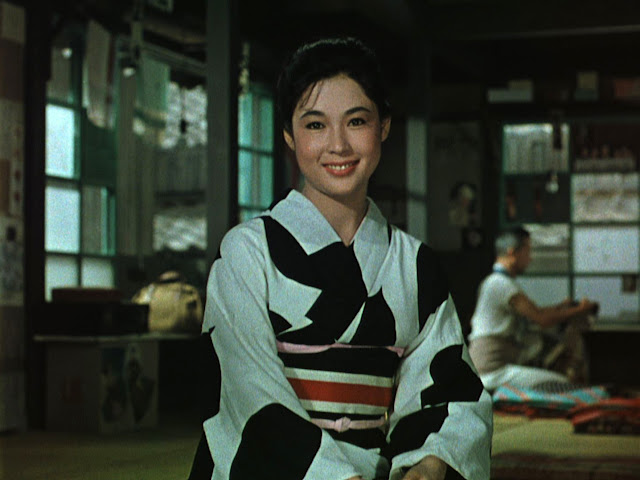VERTIGO
A film by Alfred
Hitchcock
1958/ USA/ 129
Minutes
2nd Oct 2016/ Perks
Mini theater
http://konangalfilmsociety.blogspot.in/
After leaving the police force because of this condition, John is approached by
an old acquaintance, ship yard magnate Gavin Elster to tail his wife, Madeleine,.
As John follows Madeleine, watching her day after day, he falls for her..
This cry from a wounded heart
comes at the end of Alfred Hitchcock's “Vertigo,” and by the time it comes we
are completely in sympathy. A man has fallen in love with a woman who does not
exist, and now he cries out harshly against the real woman who impersonated
her. But there is so much more to it than that.
The real woman has fallen in
love with him. In tricking him, she tricked herself. And the man, by preferring
his dream to the woman standing before him, has lost both.
Hitchcock does a masterful job
blending all of Vertigo's diverse elements together. It's a love story, a
mystery, and a thriller all rolled into one. It deals with issues of obsession,
psychological and physical paralysis, and the tenuous nature of romantic love.
Vertigo should really be seen more than once to be fully appreciated. Many of
the darker, deeper aspects only begin to bubble to the surface on subsequent
viewings.
“Vertigo” (1958), which is one of
the best films Hitchcock ever made, is the most confessional, dealing directly
with the themes that controlled his art. Alfred Hitchcock took universal
emotions, like fear, guilt and lust, placed them in ordinary characters, and
developed them in images more than in words. A thematic analysis can only
scratch the surface of this extraordinarily dense and commanding film, perhaps
the most intensely personal movie to emerge from the Hollywood cinema. (Source:
Internet)
Alfred Hitchcock
Alfred Hitchcock is known to his audiences as the 'Master of
Suspense' and what Hitchcock mastered was not only the art of making films but
also the task of taming his own raging imagination. Director of such works as
Vertigo, Psycho, The Birds and The 39 steps, Hitchcock told his stories through
intelligent plots witty dialogue and a spoonful of mystery and murder. In doing
so, he inspired a new generation of filmmakers and revolutionized the thriller
genre, making him a legend around the world. His brilliance was sometimes too
bright: He was hated as well as loved, oversimplified as well as over analyzed.
Hitchcock was eccentric, demanding, inventive, impassioned
and he had a great sense of British humor. His success followed when he made a
number of films in Britain such as "The Lady Vanishes" (1938) and
Jamaica Inn (1939), some of them which also made him famous in the USA. David
O. Selznick, an American producer at the time, got in touch with Hitchcock and
the Hitchcock family moved to the USA to direct an adaptation of Daphne du
Maurier's Rebecca (1940). It was when Saboteur (1942) was made, that films
companies began to call his films after him. He retired soon after making
Family Plot (1976).In late 1979, Hitchcock was knighted, making him Sir Alfred
Hitchcock. On the 29th April 1980, 9:17AM, he died peacefully in his sleep


























